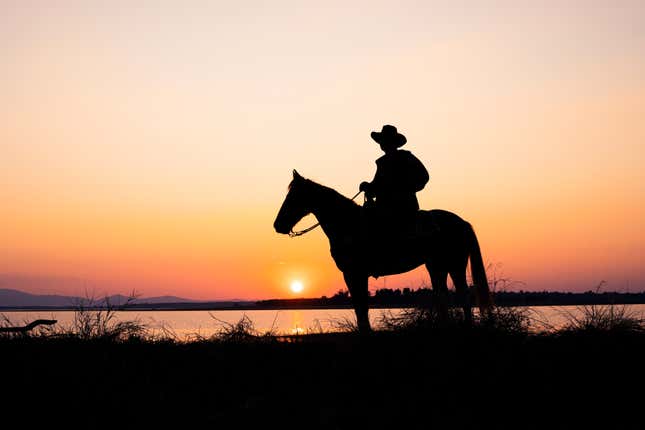
Ghuan Featherstone grew up in South Central, Los Angeles in the 70’s and rode his first horse in Griffith Park where his parents took him for the experience. And although he didn’t continue riding throughout his youth, he forever remembered how free and powerful he felt that day.
“I felt like the Lone Ranger,” he mentioned during a NPR Storycorps interview with a 13 year old horseback rider by the name of Jordan Humphreys. “I felt like I could conquer anything.”
While Featherstone served 8 years in the army, he eventually returned to his hometown to realize a dream once deferred. At “The Hill” stables in Compton, CA, the new cowboy finally learned to ride like a pro. The riders would find joy in taking their horses into the city streets despite the reigning gang violence. Sadly in 2012, a mysterious fire burned down the stables. A documentary by the name of “Fire On The Hill” tells the story.
Determined to preserve the Black cowboy culture of Los Angeles, Featherstone opened his own stables in South Gate. In 2019 he launched Urban Saddles, a non profit organization which according to the website is dedicated to “Building hope and opportunity for youth and community through the equine experience and the cowboy code of the west.”
As a Black man, Featherstone is aware of the lack of representation people of color are faced with when it comes to both fictional and historical tellings of the cowboy. His stable is not only preserving the lifestyle, but providing a safe space for the community’s youth.
“My hopes for your future is greatness,” he told young Humphreys. “Imagine all of the things you could think about other than thinking about your safety, walking around on the street or going to the store. You could be president.”
The greatest lesson Featherstone hopes his riders take away? A respect for all walks of life.
“We’re respecting the animals and we’re respecting each other,” he told Humphreys. “No matter what color, no matter what religion, no matter what sexual orientation. We’re respecting people because they’re people. Bottom line.”

